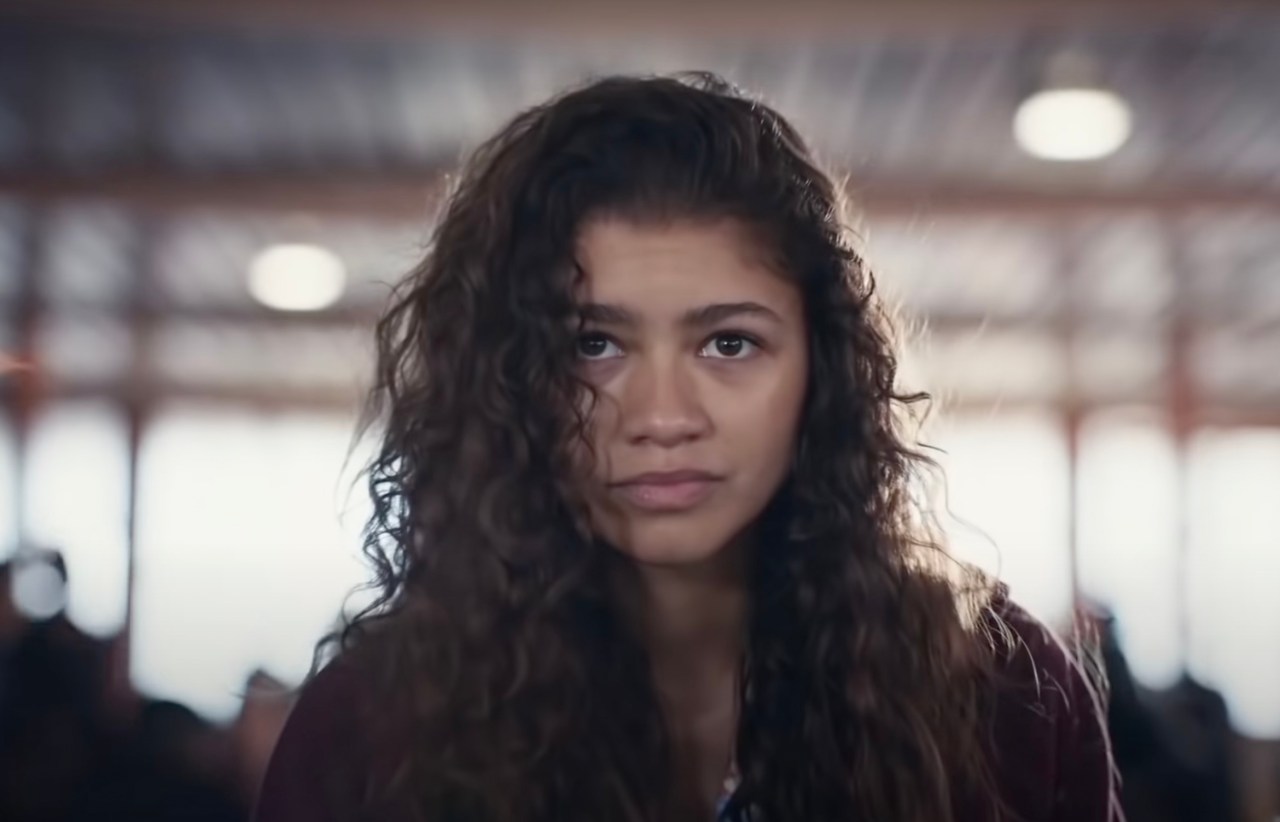
What ‘Euphoria’ Gets Right About Addiction That So Many Of Us Get Wrong
Spoilers: Seasons 1&2 of Euphoria
Euphoria isn’t necessarily the first show of its kind. Its predecessors—including Degrassi, Skins, and Gossip Girl—paved the way for many of its controversial high school storylines, such as underage sex, drug use, and abuse. But though it may recycle some popular themes from past teen dramas, Euphoria does manage to find a way to stand out from the rest—thanks to the plethora of full-frontal male nudity, sure, but also because of its chilling and sympathetic depiction of addiction.
From the beginning of the show, we’ve known Rue Bennett (played by Zendaya, who rightfully won an Emmy for the role) is a drug addict. Much of her storyline revolves around relapsing after returning home from rehab and trying to gaslight everyone who cares about her into believing she’s still clean—especially her mother, her sister Gia, and her girlfriend Jules. But Rue isn’t played off as some apathetic party girl or morally bankrupt character. Even when knee-deep in her own antics, it’s clear that Rue is just a teenage girl who’s struggling.
There are plenty of moments in the show where we see the raw underbelly of Rue’s addiction. From the beginning of the first season, Rue makes it clear that she’s always had mental health issues that only worsened when she helped take care of, and eventually lost, her father. We’re given a firsthand look into the beginnings of her substance abuse and the issues that still plague her—her grief, her anxiety, her suicidal ideations. Still, that knowledge isn’t very comforting when Rue’s addiction comes to a head in the episode Stand Still As A Hummingbird.
It’s clear that Rue is out to burn the world down in an attempt to distract people from her problems and escape from withdrawal. She tells Jules she doesn’t love her, reveals Cassie’s dark secret to the world, and single handedly causes a car accident; in one particularly harrowing scene, she violently kicks down a door while her mother and sister are cowering on the other side. It’s messy and destructive and oftentimes hard to watch, but that’s the point—addiction is hard to watch.
Zendaya discussed her character’s descent to rock bottom in an Instagram post, writing, “I think that if people can go with her through that, and get to the end, and still have hope for the future, and watch her make the changes and steps to heal and humanize her through her sobriety journey and her addiction, then maybe they can extend that to people in real life. If you can love her, then you can love someone that is struggling with the same thing, and maybe have a greater understanding of the pain they’re facing that is often out of their control.”
This is something Euphoria creator Sam Levinson knows well. He understands addiction on a personal level, having dealt with similar issues as a young adult. He knows Rue isn’t inherently more deserving of our sympathy than any other person struggling with addiction, but by giving us a voyeuristic look into her life without viewers having to suffer any personal injury, he can make us root for her nonetheless—even if we may not extend the same grace to other addicts in our lives.
There’s not a lot that can be said about addiction that hasn’t already been said, but that doesn’t mean that there isn’t more that can be shown, especially when it’s packaged in a show that’s as popular as Euphoria. It’s one thing to intellectually understand that addiction is a disease and another thing to spend time connecting with a character, even for just an hour a week, and empathizing with their pain (and of course, it is different still to love someone who is going through all the same struggles). But choosing to see the good—the humanity—in Rue gives meaning to the words her Narcotics Anonymous sponsor Ali tells her in the episode Trouble Don’t Always Last: “You’re not a drug addict because you’re a piece of shit. You’re a piece of shit because you’re a drug addict.”
Though the words may seem callous, it’s important to remember the wisdom there: Rue may hurt the ones she loves, she may hurt herself, she may burn the whole entire town to the ground, but at the end of the day, it’s not because she’s inherently a bad person. It’s not because she isn’t worthy of love or compassion. And it doesn’t mean that there’s no hope for her left, because she isn’t her addiction.
Of course, the world won’t always see it that way. It often won’t. Ali put it best when he went on to say, “The hardest part of having the disease of addiction, aside from having the disease, is that no one in the world sees it as a disease. They see you as selfish. They see you as weak. They see you as cruel. They see you as destructive. They think, Why should I give a fuck about her if she doesn’t give a fuck about herself or anybody else? Why does this girl deserve my time, my patience, my sympathy, right?”
If we ought to take away anything from Euphoria, maybe it’s that—that we should care. That we should try to understand, even if we have little frame of reference for what that person is going through. That we should allow space for redemption, because if we can keep rooting for Rue, we can keep rooting for the people who are struggling in our lives, too.

